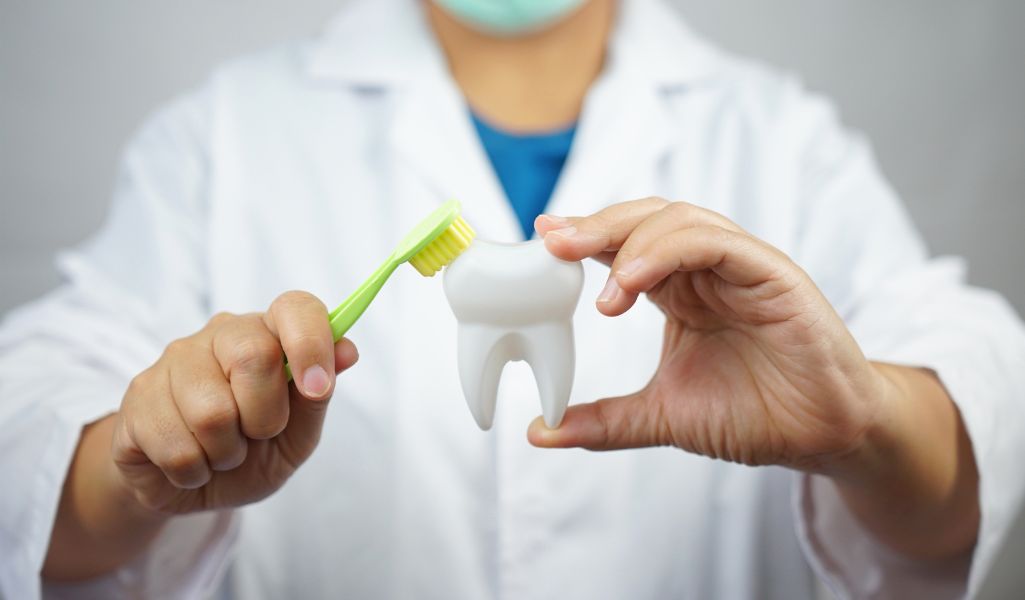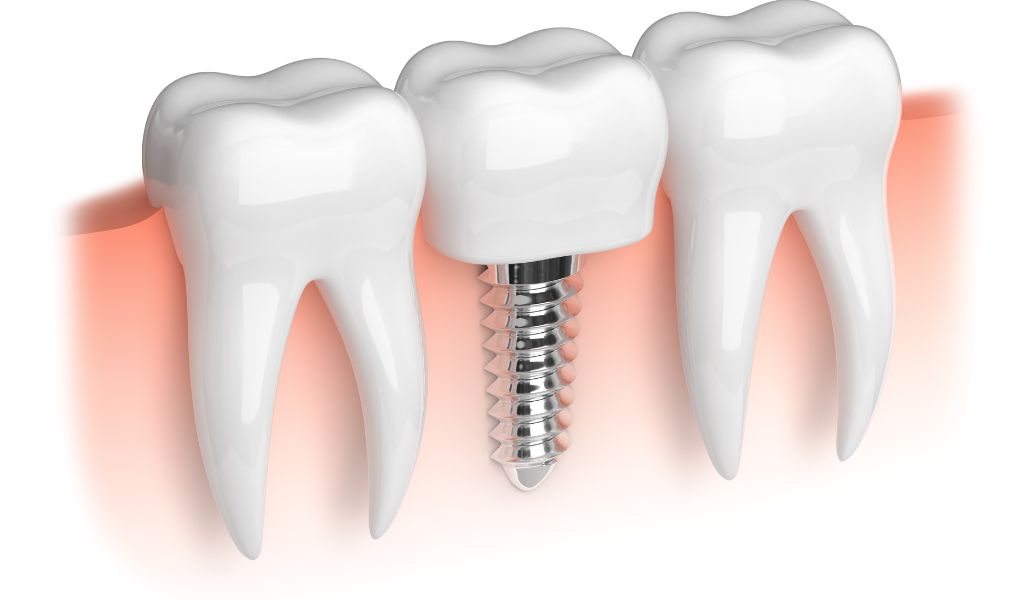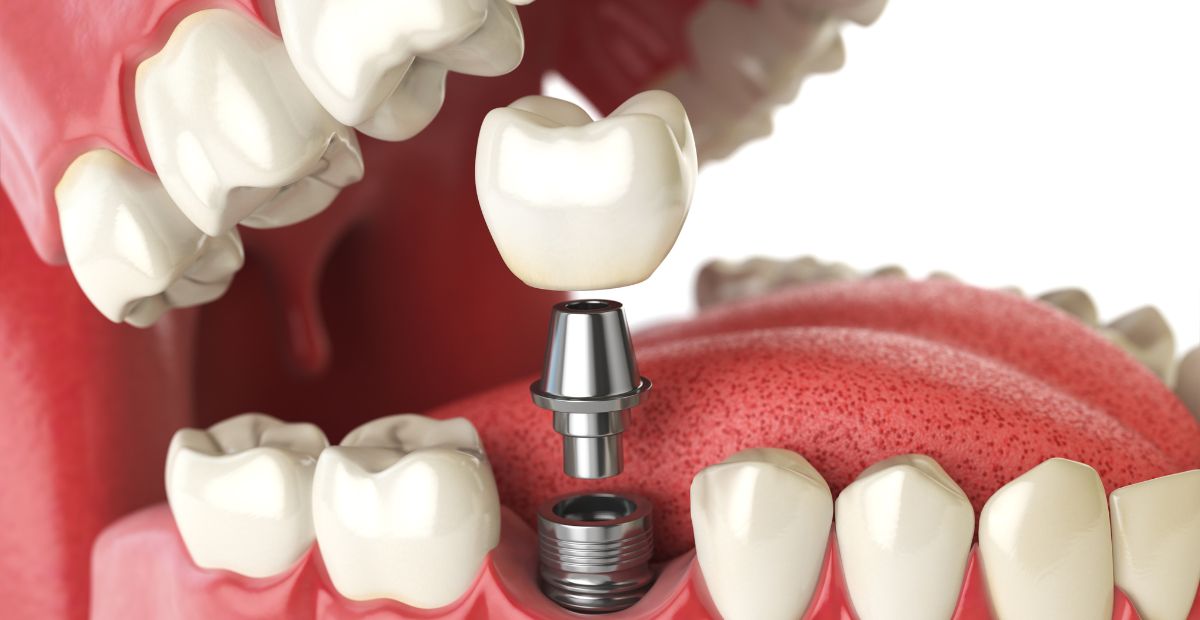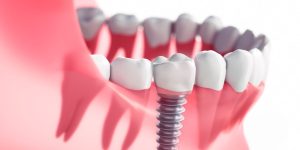Dental Implants: The Permanent Solution for Missing Teeth
A confident smile speaks volumes, leaving a lasting impression on everyone you meet. But losing a tooth, whether due to injury, decay, or aging, can have a significant impact on your self-esteem, oral health, and overall quality of life. For years, traditional dental solutions like dentures and bridges were the go-to options for replacing missing teeth. However, dental implants have emerged as a revolutionary solution, offering a permanent fix that looks, feels, and functions like natural teeth. If you're seeking a reliable and long-lasting solution for missing teeth, dental implants might just be the answer you're looking for.
In this blog, we'll explore the benefits of dental implants, the step-by-step process involved, and why dental implants are considered the gold standard in tooth replacement.
Dental implants are small titanium posts that act as artificial tooth roots. These posts are surgically embedded into the jawbone and provide a stable foundation for replacement teeth, such as crowns, bridges, or dentures. Unlike traditional dentures and bridges, which rest on the gums, dental implants fuse with the jawbone through a process called osseointegration. This process ensures that the implants become a permanent part of your mouth, offering a reliable and natural-looking solution for missing teeth.
1. Natural Look and Feel

Dental implants mimic the appearance, function, and feel of natural teeth. The custom-made crowns that sit atop the implants are designed to match the color, shape, and size of your existing teeth, ensuring a seamless blend with your smile. You’ll never have to worry about your replacement teeth looking artificial.
2. Durability and Longevity
Dental implants are built to last. With proper care, they can last a lifetime, unlike dentures or bridges, which may require periodic replacements or adjustments. This long-term solution makes dental implants an investment in your oral health and overall well-being.
3. Improved Oral Health
Missing teeth can lead to bone loss and cause nearby teeth to shift out of alignment. Dental implants prevent bone resorption and maintain the integrity of your jawbone, which in turn supports your overall oral health. Unlike bridges, which rely on adjacent teeth for support, implants don't alter surrounding teeth.
4. Improved Speech and Comfort
Dentures and bridges can sometimes slip or move around in the mouth, causing discomfort or affecting speech. Dental implants, on the other hand, are securely anchored into your jawbone, so you don’t have to worry about them shifting. You’ll be able to speak clearly, eat comfortably, and laugh confidently without any discomfort.
5. Restored Functionality
Dental implants function just like your natural teeth. Whether you’re eating your favorite foods, speaking, or laughing, you can enjoy life without worrying about your teeth. Unlike dentures, which can be bulky and uncomfortable, dental implants provide a comfortable and secure fit, restoring full functionality to your mouth.
Getting a dental implant is a multi-step process that requires some time, but the results are well worth it. Let’s walk through what you can expect when you decide to get dental implants.
Step 1: Initial Consultation

The first step is to visit a dentist near me or a dental hospital near me to discuss your options. During your consultation, your dentist will examine your oral health, take X-rays, and discuss your treatment goals. If you have any existing dental issues, such as gum disease or insufficient bone density, your dentist may recommend additional procedures, like a bone graft, before placing the implant.
Step 2: Implant Placement
Once you’re ready for the implant procedure, the dentist will surgically place the titanium post (the dental implant) into your jawbone. This is done under local anesthesia to ensure you’re comfortable during the procedure. The implant will need several months to fuse with the bone, a process known as osseointegration. During this healing period, you may be given a temporary restoration to wear.
Step 3: Placement of the Abutment
Once the implant has fully integrated with the bone, your dentist will place an abutment on top of the implant. The abutment is the part that connects the implant to the crown or bridge. This step typically requires a small procedure to expose the top of the implant, after which the abutment is attached.
Step 4: Placement of the Final Restoration
After the abutment is placed, your dentist will take impressions of your mouth to create a custom crown, bridge, or denture. The restoration is carefully crafted to match the shape, color, and size of your natural teeth. Once the restoration is ready, it will be securely attached to the abutment, completing your dental implant treatment.
Step 5: Aftercare
After your dental implants are placed, it’s important to follow your dentist’s instructions for aftercare. This may include pain management, avoiding hard foods during the healing process, and maintaining good oral hygiene. Regular follow-up visits with your dentist will ensure that your implants are healing properly and that your new smile remains in top condition.
1.Good Oral Hygiene

Maintaining good oral hygiene is essential for the longevity of your dental implants. Brush your teeth at least twice a day with a soft-bristled toothbrush and fluoride toothpaste. Floss daily to remove plaque and food particles from between your teeth and around the implant.
2.Regular Dental Check-Ups
Regular check-ups with your dentist are crucial to monitor the health of your dental implants and overall oral health. Your dentist near me will perform professional cleanings and check for any signs of complications.
3.Avoiding Harmful Habits
Avoid habits that can damage your dental implants, such as smoking, chewing on hard objects, and grinding your teeth. If you grind your teeth at night, your dentist may recommend wearing a mouthguard to protect your implants.




